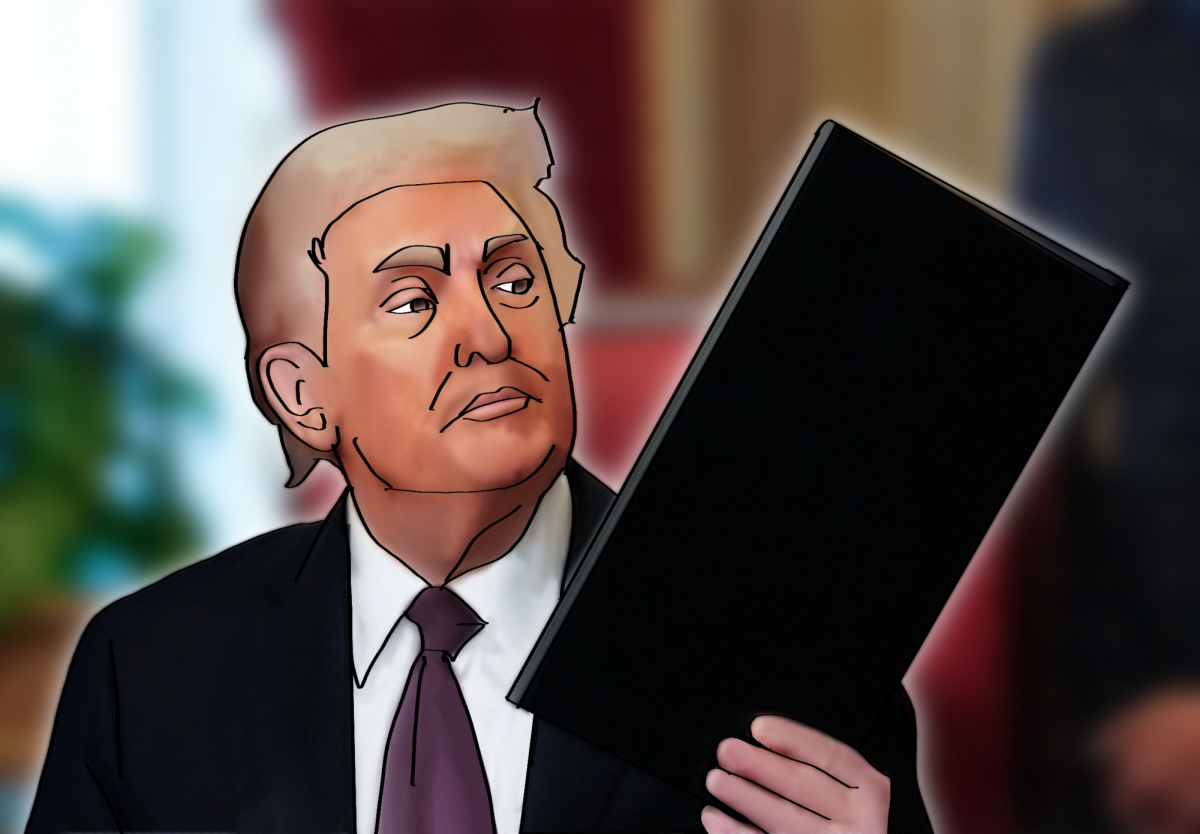The United States and Canada have had a long history of economic closeness, sharing one of the largest trade relationships in the world. Despite this, Donald Trump and his administration have decided to impose new tariffs on Canadian imports. These tariffs feature a 10% tariff on energy and a 25% tariff on steel and aluminum. In response, Canada has raised its own tariffs. This retaliation and front and back confrontation have raised concerns on the future for both countries and their relationship.
The reasoning behind these tariffs is based on economic nationalism. The Trump Administration argues that protecting American industries like steel, aluminum and energy will strengthen manufacturing and reduce reliance on foreign goods. By imposing tariffs on Canadian imports, the goal is for more production within the U.S., leading to job growth and economic stability.
“I think that the Trump Administration is trying to emphasize the use of American goods rather than outside goods. They are doing this to keep economic stability inside the U.S. not to harm the relationship with other countries like Mexico and Canada,” sophomore Alessandro Frutos-Morffi said.
This seems like a step toward national pride. However, many American companies rely on Canadian materials to manufacture products, and these tariffs are forcing them to either pay higher prices or look for other suppliers, both of which can lead to disruptions in business operations. This ends up negatively affecting U.S. workspaces regardless. Tariffs might provide short-term benefits for certain industries, but they often cause more harm than good in the long run. Canada is the United States’ largest trading partner. This exchange with tariffs will drive up costs for consumers.
“It can be unintelligent especially for us who buy so many products from these countries. I recently purchased an item that cost me about $30, I checked recently and the price for the same item had gone up to $70. This is outrageous because we are all being affected even with small things,” junior Matteo Plaisir said.
Canada supplies electricity to the U.S., particularly from hydroelectric power, which is a significant part of Canada’s energy exports. New York, Minnesota and New England states are among the biggest importers of Canadian electricity. This is a problem because with a continuation of tariffs imposed on Canada, the Prime Minister is likely to stop supplying these states with electricity which would result in a huge loss of money.
“This is an unfair situation because the decisions made by the Trump administration are affecting most of his nonvoters. It is also important for states like New York especially which the U.S. relies so heavily on with businesses. It is also scary because an electric shutdown could be dangerous for the citizens in that state,” sophomore Mia Parker said.
These decisions are based on a mercantilist approach by the Trump administration which aims to keep their exports higher than their imports and letting their resources be used by other countries to gain money. This approach assumes that a strong economy comes from keeping resources within the country and reducing foreign competition, rather than working together with trade partners. In today’s world, this way of thinking is outdated and harmful.
“I do not think there is an immediate solution. But I think these approaches are outdated and should not be the focus on a country that focuses on the liberty of their citizens. This seems like a pressurized approach that they might not go for. We will have to see in the coming days how it turns out,” sophomore Christian Fiallo.
These tariffs will harm businesses on both countries, leading to higher costs, a loss in jobs and especially faulty diplomatic relationships. What many fail to realize is that strong trade partnerships and national economic growth are not opposing ideas. Tariffs from Canada will impact American exports, making it harder for U.S. manufacturers and small businesses to sell their products to neighboring countries.
With tensions rising, a balanced approach is crucial. The U.S. and Canada have spent decades building a trade relationship that benefits both nations. Tariffs threaten to undo years of economic progress, damaging industries. Instead, the priority should be strengthening fair trade agreements.










